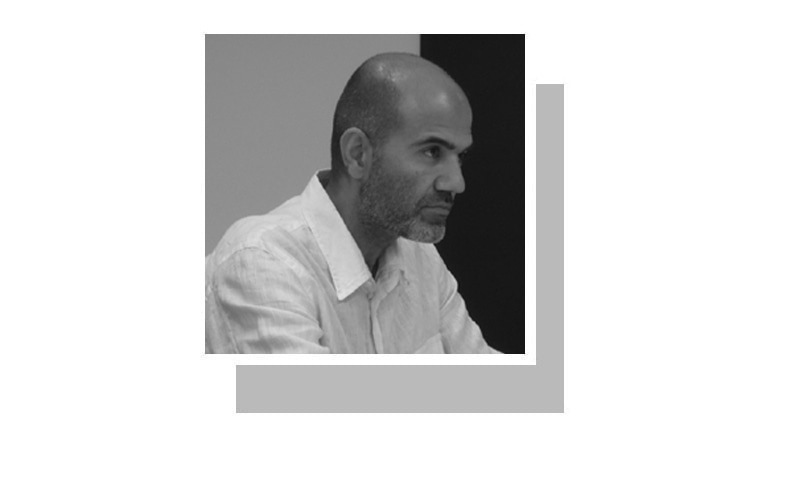TALK of crisis is commonplace in Pakistan, the combination of a sensationalist news cycle and incessant political intrigue serving up almost daily speculation about existential wars against neighbouring countries, the next political opponent of the government to be jailed for ‘corruption’, the potential of azadi marches to precipitate regime change and much more.
A wholly organic crisis, in contrast, is one with deep, societal roots, which gestates and festers over time, and which, unidentified and unaddressed, eventually makes the wrangling within ruling class circles look like child’s play. One such long-term crisis has at least found some space in the news cycle recently — that of our militarised, rentier economy, lurching from one hybrid of external patronage and elite capture to the next. But another related crisis, which brings our unsustainable macro political economy into sharp focus, till now remains unnamed.
I had written previously about a youth ‘volcano’ building up a head of steam, waiting to erupt. The numbers bear repeating: Pakistan is now a country of 140 million young people whose unmeet needs and expectations are throwing up an organic crisis the likes of which the establishment and our pro-establishment politicians have never faced before.
Instead of ‘Baloch’, the title of this column could have mentioned Pakhtun, Sindhi, Seraiki, Gilgiti, Balti, Kashmiri, Hazara, even Punjabi. I choose Baloch because it is the single most brutalised — and politicised — ethnic community in Pakistan. It was the abduction of Baloch youth more than a decade ago, for example, which brought to light the ‘missing persons’ phenomenon. More recently, student protests at Balochistan University have followed those at many other institutions across the country which illuminate the scandalous excess of administrators in higher education, particularly their abuse of female students.
The youth crisis is triggered by frustrated aspirations.
Of course the most organised political movement of recent times has been the one spearheaded by Pakhtun youth from former Fata. It is worth remembering that the PTM garnered support from young, well-educated Pakhtuns who are more upwardly mobile than their ‘tribal’ counterparts, confirming that the discontent amongst young people is not limited to the ‘poor’.
I use the term ‘poor’ deliberately, because the organic crisis of youth in Pakistan is, I believe, triggered by frustrated aspirations for mobility and dignity amongst many young people that are only a step removed from being ‘poor’. Many have humble ‘middle-class’ backgrounds, which means that their parents struggled hard to send them to school so that they could secure better lives. Some want to become civil servants, others to get private-sector employment, yet more try setting up a small enterprise.
But then a recent report indicated that 97.5 per cent of those who take the CSS Entrance examination fail. Permanent employment in the private sector is difficult to come by as flexible work arrangements become the norm and the huge surplus pool of labour grows due to the youth bulge. Finally, small businesses are struggling to survive in an economy wracked by the outsourcing of MNCs and a political environment where big fish are left untouched while little ones are made targets of ‘anti-corruption’ and ‘anti-encroachment’ drives.
Still, more and more young people are buying into the ‘middle-class’ dream, believing that higher education is their best chance of upward mobility. This increased demand for certification then translates into rising fees amidst worsening facilities. And so the anger grows.
It would, however, be unwise to think that this anger is purely driven of material causes. To return to the Baloch example; the ‘Aghaz-i-Huqooq-i-Balochistan’ package was announced exactly a decade ago to bring young Baloch into the mainstream via educational scholarships and public-sector jobs. The notion that a restive population can be made loyal via such packages is part of the problem.
Indeed, the underlying problem is a militarised, macro political economy characterised by gross inequalities of wealth and power in which formal political institutions are dominated by money (home and abroad) as well as khaki overlords while federalism remains a pipe dream. If one calls out the system, as happened on a Karachi highway earlier this week, the policy appears to be to shoot on sight, and then invoke the ‘national security’ narrative.
In the face of this organic crisis which the ruling class neither understands nor wants to redress there is hope in the form of sons and daughters of the soil, like BBC-honoured Jalila Haider. Young people themselves must become the vanguard of a politics to transform the contradictory totality that is Pakistan, one that acknowledges inequalities of ethnicity, gender, caste and religion, even while striving to bring together all working people who toil for a better, dignified life.
The writer teaches at Quaid-i-Azam University, Islamabad.
Published in Dawn, October 18th, 2019












































